DATE 2023 Impressions
Photos are available in the DATE 2023 Gallery.
Music from #Uppbeat (free for Creators!): https://uppbeat.io/t/mark-july/when-i-saw-you; License code: DAQIMDHC2XOH7WXE
Share this page on social media

The time zone for all times mentioned at the DATE website is CEST – Central Europe Summer Time (UTC+1). AoE = Anywhere on Earth.
Music from #Uppbeat (free for Creators!): https://uppbeat.io/t/mark-july/when-i-saw-you; License code: DAQIMDHC2XOH7WXE
Share this page on social media
Jason Cong, UCLA, US
https://www.date-conference.com/edaa-achievement-award-2023-goes-jason-cong
Cristiana Bolchini, Politecnico di Milano, IT
Giovanni De Micheli, EPFL, CH
Ian O’Connor, École Centrale de Lyon, FR
Alessio Burrello, Politecnico di Torino and Università di Bologna, IT
Optimizing Ai: From Network Topology Design To Mcu Deployment
Jatin Arora, CISTER Research Centre, ISEP, IPP, PT
Shared Resource Contention Aware Schedulability Analysis For Multiprocessor Real-Time Systems
Xiaochen Peng, Ph.D
Benchmark Framework for 2-D/3-D Integrated Compute-in-Memory based Machine Learning Accelerator
Martin Rapp, Ph.D.
Machine Learning for Resource-Constrained Computing Systems
Zhiyao Xie, Ph.D.
Intelligent Circuit Design and Implementation with Machine Learning
Hasan Hassan, Ph.D.
Improving DRAM Performance, Reliability, and Security by Rigorously Understanding Intrinsic DRAM operations
Cristiana Bolchini, Politecnico di Milano, IT
DATE 2023 also presented the DATE Fellow Awards from DATE 2020 to DATE 2022:
DATE 2020 Fellow Award: Jürgen Teich, Friedrich-Alexander-Universität Erlangen-Nürnberg (FAU), DE
DATE 2021 Fellow Award: Giorgio di Natale, TIMA (CNRS), Grenoble, FR
DATE 2022 Fellow Award: Franco Fummi, University of Verona, IT
Each year the Design, Automation and Test in Europe Conference presents awards to the authors of the best papers. The selection is performed by the award committee composed of the Track Chairs Lukas Sekanina, Alberto Bosio, Ilia Polian and Liliana Cucu and the following members: Katell Morin-Allory, Jeronimo Castrillon, Alessio Spessot, Julio Medina, Jean-Philippe Noel, Lorena Anghel, Dimitris Gizopoulos, Rosa Rodríguez-Montañés, Kazuo Sakiyama, Elke De Mulder, Ahmed Rezine, Cristiana Bolchini, Callie Cong, Julien Forget and Masanori Hashimoto.
Hardware Efficient Weight-Binarized Spiking Neural Networks
Chengcheng Tang and Jie Han
University of Alberta, CA
Automated Energy-Efficient DNN Compression under Fine-Grained Accuracy Constraints
Ourania Spantidi and Iraklis Anagnostopoulos
Southern Illinois University Carbondale, US
Haoyi Zhang, Xiaohan Gao, Haoyang Luo, Jiahao Song, Xiyuan Tang, Junhua Liu, Yibo Lin, Runsheng Wang and Ru Huang
Peking University, CN
PRADA: Point Cloud Recognition Acceleration via Dynamic Approximation
Zhuoran Song, Heng Lu, Gang Li, Li Jiang, Naifeng Jing and Xiaoyao Liang
Shanghai Jiao Tong University, CN
Perspector: Benchmarking Benchmark Suites
Sandeep Kumar1; Abhisek Panda2; Smruti R. Sarangi1
1IIT Delhi, IN; 2Indian Institute of Technology, IN
A Speed- and Energy-Driven Holistic Training Framework for Sparse CNN Accelerators
Yuanchen Qu; Yu Ma; Pingqiang Zhou
Shanghaitech University
GraphIte: Accelerating Iterative Graph Algorithms on ReRAM Architectures via Approximate Computing
Dwaipayan Choudhury; Ananth Kalyanaraman; Partha Pratim Pande
Washington State University
Narrowing The Synthesis Gap: Academic FPGA Synthesis Is Catching Up With The Industry
Benjamin Barze1; Arya Reais-Parsi1; Eddie Hung2; Minwoo Kang1; Alan Mishchenko1; Jonathan W. Greene1; John Wawrzynek1
1UC Berkeley, US; 2FPG-eh Research and University of British Columbia
Computing Effective Resistances on Large Graphs Based on Approximate Inverse of Cholesky Factor
Zhiqiang Liu; Wenjian Yu
Tsinghua University
Fanout-Bounded Logic Synthesis for Emerging Technologies - A Top-Down Approach
Dewmini Marakkalage; Giovanni De Micheli
Ecole Polytechnique Fdrale de Lausanne (EPFL)
Hardware Efficient Weight-Binarized Spiking Neural Networks
Chengcheng; Jie Han
University of Alberta
Hierarchical Non-Structured Pruning for Computing-In-Memory Accelerators with Reduced ADC Resolution Requirement
Wenlu Xue; Jinyu Bai; Sifan Sun; Wang Kang
Beihang University
PIC-RAM: Process-Invariant Capacitive Multiplier Based Analog In Memory Computing in 6T SRAM
Kailash Prasad; Aditya Biswas; Arpita Kabra; Joycee Mekie
Indian Institute of Technology Gandhinagar
Benchmarking Large Language Models for Automated Verilog RTL Code Generation
Shailja Thakur1; Baleegh Ahmad1; Zhenxing Fan1; Hammond Pearce1; Benjamin Tan2; Ramesh Karri1; Brendan Dolan-Gavitt1; Siddharth Garg1
1New York University; 2University of Calgary
Processor Verification using Symbolic Execution: A RISC-V Case Study
Niklas Bruns1; Vladimir Herdt2; Rolf Drechsler1,2
1University of Bremen, 2DFKI
Synthesis with Explicit Dependencies
Priyanka Golia1,2; Subhajit Roy1; Kuldeep S Meel2
1IIT Kanpur, 2National University of Singapore
Minimizing Communication Conflicts in Network-On-Chip based Processing-In-Memory Architecture
Hanbo Sun; Tongxin Xie; Zhenhua Zhu; Guohao Dai; Huazhong Yang; Yu Wang
Tsinghua University
Accelerating Gustavson-based SpMM on Embedded FPGAs with Element-wise Parallelism and Access Pattern-aware Caches
Shiqing Li; Weichen Liu
Nanyang Technological University
PEDAL: A Power Efficient GCN Accelerator with Multiple DAtafLows
Yuhan Chen; Alireza Khadem; Xin He; Nishil Talati; Tanvir Ahmed Khan; Trevor Mudge
University of Michigan
SAGERoute: Synergistic Analog Routing Considering Geometric and Electrical Constraints with Manual Design Compatibility
Haoyi Zhang; Xiaohan Gao; Haoyang Luo; Jiahao Song; Xiyuan Tang; Junhua Liu; Yibo Lin; Runsheng Wang; Ru Huang
Peking University
Non-Profiled Side-Channel Assisted Fault Attack: A Case Study on DOMREP
Sayandeep Saha; Prasanna Ravi; Dirmanto Jap; Shivam Bhasin
Nanyang Technological University, Singapore
Efficient Software Masking of AES through Instruction Set Extensions
Songqiao Cui; Josep Balasch
KU Leuven
Hardware Trojans in eNVM Neuromorphic Devices
Lingxi Wu; Rahul Sreekumar; Rasool Sharifi; Kevin Skadron; Stan Mircea; Ashish Venkat
University of Virginia
SoCFuzzer: SoC Vulnerability Detection using Cost Function enabled Fuzz Testing
Muhammad Monir Hossain; Arash Vafaei; Kimia Zamiri Azar; Fahim Rahman; Farimah Farahmandi; Mark Tehranipoor
University of Florida
Automated Energy-Efficient DNN Compression under Fine-Grain Accuracy Constraints
Ourania Spantidi; Iraklis Anagnostopoulos
Southern Illinois University Carbondale
Efficient Parallelization of 5G-PUSCH on a Scalable RISC-V Manycore Processor
Marco Bertuletti1; Yichao Zhang1; Alessandro Vanelli-Coralli1,2; Luca Benini1,2
1ETH Zurich; 2Universita di Bologna
EvoLUTe: Evaluation of Look-Up-Table-based Fine-Grained IP Redaction
Rui Guo; Mohammad Rahman; Hadi Mardani Kamali; Fahim Rahman; Farimah Farahmandi;
Mark Tehranipoor University of Florida
RTLock: IP Protection using Scan-Aware Logic Locking at RTL
Md Rafid Muttaki; Shuvagata Saha; Hadi Mardani Kamali; Fahim Rahman; Mark Tehranipoor;
Farimah Farahmandi
University of Florida
CorrectNet: Robustness Enhancement of Analog In-Memory Computing for Neural Networks by Error Suppression and Compensation
Amro Eldebiky1; Grace Li Zhang2; Georg Bocherer3; Bing Li1; Ulf Schlichtmann1
1Technical University of Munich; 2TU Darmstadt; 3Huawei Munich Research Center
Device-Aware Test for Back-Hopping Defects in STT-MRAMs
Sicong Yuan1; Mottaqiallah Taouil1; Moritz Fieback1; Hanzhi Xun1; Erik Jan Marinissen2; Gouri Kar2; Siddharth Rao2; Sebastien Couet2; Said Hamdioui1
1Delft University of Technology; 2IMEC
Assessing Convolutional Neural Networks Reliability through Statistical Fault Injections
Annachiara Ruospo1; Gabrile Gavarini1; Corrado De Sio1; Juan Guerrero Balaguera1; Luca Sterpone1; Matteo Sonza Reorda1; Ernesto Sanchez1; Riccardo Mariani2; Joseph Aribido2;
Jyotika Athavale2 1Politecnico di Torino; 2NVIDIA
Light Flash Write for Efficient Firmware Update on Energyharvesting IoT Devices
Songran Liu1; Mingsong Lv2; Wei Zhang3; Xu Jiang1; Chuancai Gu4; Tao Yang4; Wang Yi5; Nan Guan6
1Northeastern University; 2The Hong Kong Polytechnic University; 3Shandong University; 4Huawei Technologies Company; 5Uppsala University; 6City University of Hong Kong
Ditty: Directory-based Cache Coherence for Multicore Safety-critical Systems
Zhuanhao Wu; Marat Bekmyrza; Nachiket Kapre; Hiren Patel
University of Waterloo
PRADA: Point Cloud Recognition Acceleration via Dynamic Approximation
Zhuoran Song; Heng Lu; Gang Li; Li Jiang; Naifeng Jing; Xiaoyao Liang
Shanghai Jiao Tong University
Federated Learning with Heterogeneous Models for On-device Malware Detection in IoT Networks
Sanket Shukla1; Setareh Rafatirad2; Houman Homayoun2; Sai Manoj Pudukotai Dinakarrao1 1George Mason University; 2University of California Davis
Genetic Algorithm-based Framework for Layer-Fused Scheduling of Multiple DNNs on Multi-core Systems
Sebastian Karl1; Arne Symons2; Nael Fasfous; Marian Verhelst2
1TU Munich; 2KU Leuven; 3BMW AG
HADAS: Hardware-Aware Dynamic Neural Architecture Search for Edge Performance Scaling
Halima Bouzidi1; Mohanad Odema2; Hamza Ouarnoughi3; Mohammad Al Faruque2; Smail Niar3
1Univ. Polytechnique Hauts-de-France, LAMIH; 2University of California Irvine; 3INSA Hautsde-France
Share this page on social media
This survey is available from Monday, 17 April 2023, 15:00 CEST to Friday, 21 April 2023, 17:00 CEST.
Your opinions will be most appreciated and will help the committee to maintain future DATE conferences at the highest quality and even increase the relevance of the event in the European Design and Test community. Thank you for your time and support!
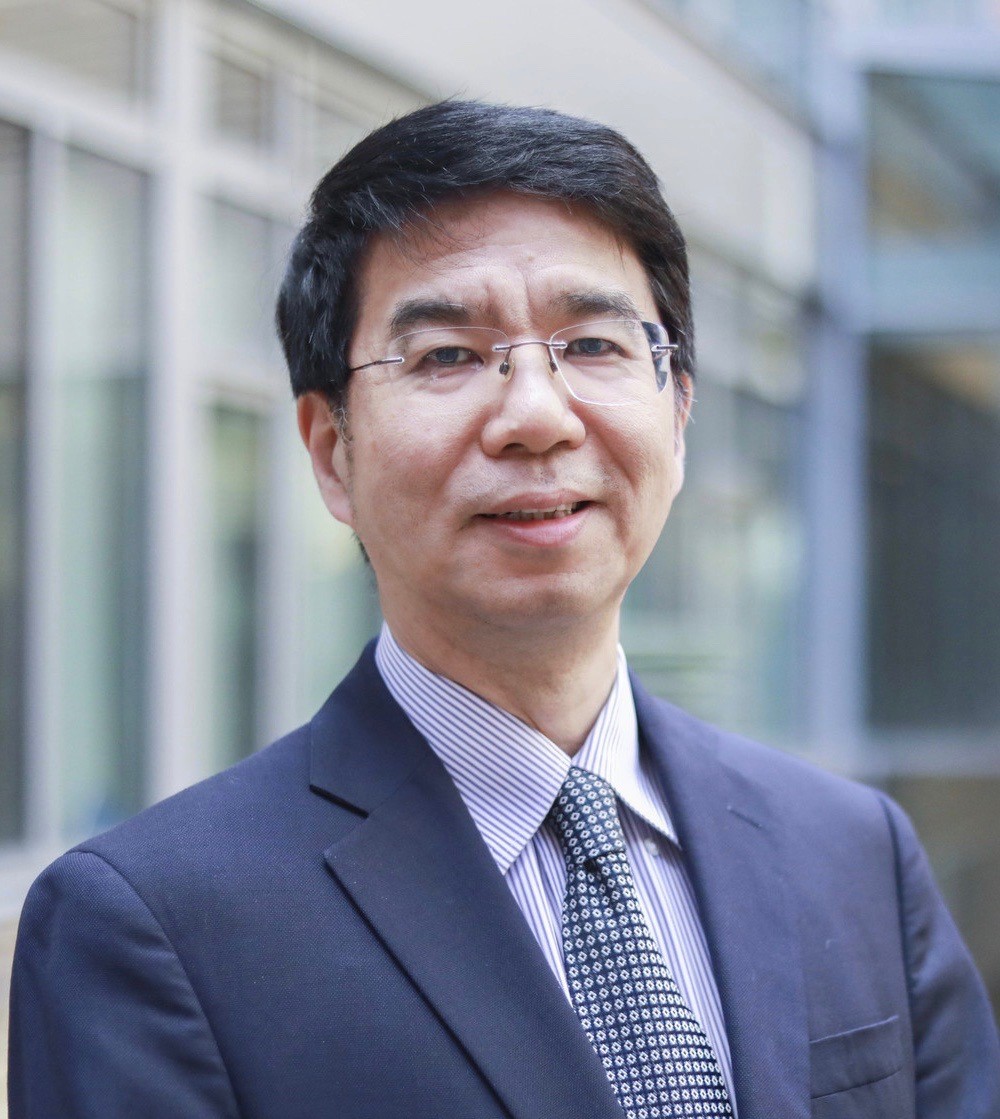 The Achievement Award is given to individuals who made outstanding contributions to state of the art in electronic design, automation and testing of electronic systems in their life. To be eligible, candidates must have made innovative contributions that impacted how electronic systems are being designed.
The Achievement Award is given to individuals who made outstanding contributions to state of the art in electronic design, automation and testing of electronic systems in their life. To be eligible, candidates must have made innovative contributions that impacted how electronic systems are being designed.
Past recipients have been Kurt ANTREICH (2003), Hugo DE MAN (2004), Jochen JESS (2005), Robert BRAYTON (2006), Tom W. WILLIAMS (2007), Ernest S. KUH (2008), Jan M. RABAEY (2009), Daniel D. GAJSKI (2010), Melvin A. BREUER (2011), Alberto L. SANGIOVANNI-VINCENTELLI (2012), Peter MARWEDEL (2013), Rolf ERNST (2014), Lothar THIELE (2015), Giovanni DE MICHELI (2016), C. L. David LIU (2017), Mary Jane IRWIN (2018), Jacob ABRAHAM (2019), Luca BENINI (2020), Georges GIELEN (2021), and Edward A. LEE (2022).
Dr. Jason Cong is the Volgenau Chair for Engineering Excellence in the UCLA Computer Science Department (with a joint appointment in the Department of Electrical and Computer Engineering), the Director of the Center for Domain-Specific Computing (funded by NSF Expeditions in Computing Award), and the director of VLSI Architecture, Synthesis, and Technology (VAST) Laboratory. He served as the chair of the UCLA Computer Science Department from 2005 to 2008. He is the author of more than 500 papers, including 17 Best Paper Awards. Dr. Cong’s research publications have close to 35,000 citations, according to Google Scholar, and he is a frequent keynote speaker at major conferences in EDA and design automation. He has graduated 44 PhD students.
Share this page on social media
This document describes the guidelines to prepare and present audio-visual materials at DATE 2023. Please read all instructions carefully and follow them strictly to maintain the highest possible standards. Even experienced speakers should read the following paragraphs, as they cover several problems that have arisen over the years.
DATE provides a centralised presentation management system for speakers of D, A, T and E Track sessions, Late Breaking Results paper presentations, Multi-Partner Project presentations, Focus Sessions, Special Day and Special Initiative ASD presentations as well as presentations in line with the Young People Programme. It will not be possible to use own devices for presentations in the session rooms.
The centralised presentation management will not be provided for workshops (incl. Special Initiative ASD workshop) and embedded tutorials. Workshop and embedded tutorial speakers will receive presentation information from the workshop/embedded tutorial organisers.
Share this page on social media
The online registration to the conference is only possible via the online registration platform until 31 March 2023, 23:59:00 CEST. Please kindly note that everyone who wants to attend the conference or single sessions, must register.
Share this page on social media
Share this page on social media
Download the DATE 2023 Promotion & Sponsorship Opportunities here
DATE is the perfect opportunity to present and communicate your technological and business capabilities to scientific, industrial and commercial audiences at one single European event. All companies, institutions, universities, initiatives and projects that are linked to DATE as promotion partners or sponsors benefit from the additional visibility of their corporate identity, their products, services, expertise and cause.
The DATE 2023 promotion & sponsorship opportunities brochure gives you and idea of what DATE 2023 can offer. Tailor-made packages can be arranged to suit your special requests. Feel free to contact us to discuss your needs and ideas.
We would be delighted to welcome you among our promotion partners and sponsors at DATE, and to welcome you in Antwerp for an interesting programme and effective networking.
Share this page on social media
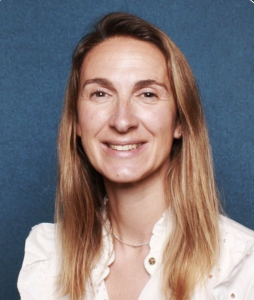
Augmented reality is a set of technologies that will fundamentally change the way we interact with our environment. It represents a merging of the physical and the digital worlds into a rich, context aware and accessible user interface delivered through a socially acceptable form factor such as eyeglasses. One of the biggest challenges in realizing a comprehensive AR experience are the performance and form factor requiring new custom silicon. Innovations are mandatory to manage power consumption constraints and ensure both adequate battery life and a physically comfortable thermal envelope. This presentation reviews Augmented Reality and Virtual Reality applications and Silicon challenges.
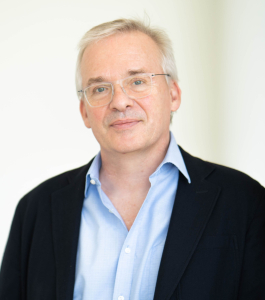
The concept of Digital Twins (DTs) has been discussed intensively for the past couple of years. Today we have instances of digital twins that range from static descriptions of manufacturing data and material properties to live interfaces to operational data of cyber physical systems and the functions and services they provide.
Currently, there are no standardized interfaces to aggregate atomic DTs (e.g., the twin of the lowest-level function of a machine) to higher-level DTs providing more complex services in the virtual world. Additionally, there is no existing infrastructure to reliably link the DTs in the virtual world to the integrated CPSs in the real world (like a car consisting of many ECUs with even more functions).
This keynote will address how the Metaverse can become the virtual world where DTs of humans and machines live and how to reliably connect DTs to the physical world. Insights in current activities of Bosch Research and its academic partners to move towards this vision will be provided.
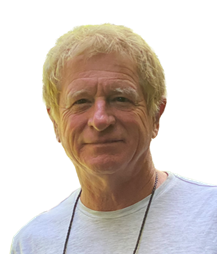
The emergence of “Very Large Scale Integration (VLSI)” in the late 1970’s created a groundswell of feverish innovation. Inspired by the vision laid out in Mead and Conway’s “Introduction to VLSI Design”, numerous researchers embarked on venues to unleash the capabilities offered by integrated circuit technology. The introduction of design rules, separating manufacturing from design, combined with an intermediate abstraction language (CIF) and a silicon brokerage service (MOSIS) gave access to silicon for a large population of eager designers. The magic however expanded way beyond these circuit enthusiasts and attracted a whole generation of software experts to help automate the design process, given rise to concepts such as layout generation, logic synthesis, and silicon compilation. It is hard to overestimate the impact that this revolution has had on information technology and society at large.
About fifty years later, Integrated Circuits are everywhere. Yet, the process of creating these amazing devices feels somewhat tired. CMOS scaling, the engine behind the evolution in complexity over all these decades, is slowing down and will most likely peter out in about a decade. So has innovation in design tools and methodologies. As a consequence, the lure of IC design and design tool development has faded, causing a talent shortage worldwide. Yet, at the same time, this moment of transition offers a world of opportunity and excitement. Novel technologies and devices, integrated in three-dimensional artifacts are emerging and are opening the door for truly transformational applications such as brain-machine interfaces and swarms of nanobots. Machine learning, artificial intelligence, optical and quantum computing present novel models of computation surpassing the instruction-set processor paradigm. With this comes a need again to re-invent the design process, explicitly exploiting the capabilities offered by this next generation of computing systems. In summary, it is time to put the magic in design again.
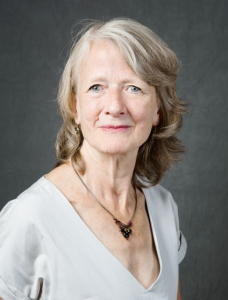
Our research work focuses on modeling Socially Interactive Agents, i.e. agents capable of interacting socially with human partners, of communicating verbally and non-verbally, of showing emotions. but also of adapting their behaviors to favor the engagement of their partners during the interaction. As partner of an interaction, SIA should be able to adapt its multimodal behaviors and conversational strategies to optimize the engagement of its human interlocutors. We have developed models to equip these agents with these communicative and social abilities. In this talk, I will present the works we have been conducted.
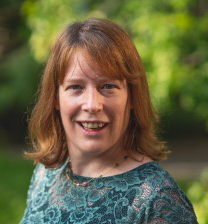
The complexity, cycle time and cost of new precision therapy workflow are a major challenge to overcome in order to achieve clinical implementation of this revolutionary type of treatments. For example, car T cells use the patient’s own immune (T-)cell adapted in a way to better fight cancer. Chip technology can help to make these therapies more efficient, precise, and cost-effective. Over the last few decades, the semiconductor industry has grown exponentially, poised to increase value to the end-user while driving down costs by scaling. The result is the world’s highest standard in precision and high-volume production of nanoelectronics chip-based sensor solutions. Imec has used its semiconductor process expertise and infrastructure to make significant innovations in single-use silicon biochip and microfluidic technology, creating toolboxes of on-chip functions spanning DNA sequencing, cell sorting, single cell electroporation, integrated biosensor arrays. The solutions have until now mostly served the diagnostic market. Chip based microfluidics is a toolbox that brings its own design challenges, especially in relation to not having to reinvent the wheel every time. Hence, we try to make maximal reuse of generic fluidic building blocks developed for the diagnostic market, and we will explain how these building blocks are equally adapted for addressing the challenges in immune therapy. These existing demonstrations on chip could enable to provide smarter solutions for discrete unit operations and quality monitoring to even complete workflow integration. Solving these challenges would enable more patients to access and benefit from the next most anticipated class of life changing therapies.